Escape from Antidepressants
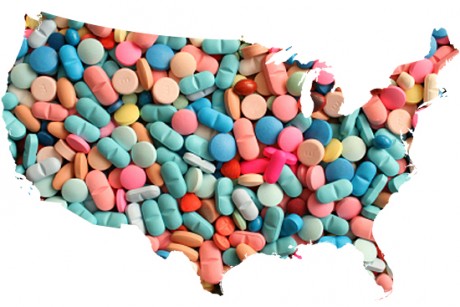
John 8:36
If the Son therefore shall make you free, ye shall be free indeed.
For anyone first reading the Health and Nutrition Update, please read this first: Your Health.
Please go to God’s Health System and subscribe to receive the updates.
Always remember that you are in charge of your health and not the doctors. Do not put your life in their hands but first seek God and His health system.
UPDATE: This post originally appeared on June 4, 2014. It has been updated with new information, but the original information still is valid. The new research and articles continue to confirm what we originally posted about antidepressants. But this topic is even more important now, because more people are taking or being offered antidepressants, and therefore it was important to bring it to the public’s attention again.
(Much of this research/writing was done by Georgann Ryan, a former attorney, who is now helping with this blog. I hope with Georgann’s assistance that this blog will keep you on the cutting edge of many critically important health related topics like this one.)
In my ministry to heal the brokenhearted, I often encounter depressed people, who think the depression is caused by a chemical imbalance in the brain. The purpose of the following Commentary and articles are to cut through the propaganda about antidepressants. These are mind altering dangerous drugs. The cause of depression is NOT a “chemical imbalance” which is pure propaganda to promote theses drugs. I am hoping that this presentation will correct this fallacy about antidepressants and help people seek the Lord’s peace and joy, which is the real antidote for depression and anxiety.
John 14:27 Peace I leave with you, my peace I give unto you: not as the world giveth, give I unto you. Let not your heart be troubled, neither let it be afraid.
Commentary on the Antidepressants
Antidepressants are being prescribed more and more frequently for “mental health” problems ranging from depression to anxiety to social discomfort. In part, the increase relates to determined advertising campaigns by drug companies, collusion for profit between psychiatrists, drug companies and the FDA, and expanding definitions of conditions that are defined as mental illnesses.
More than ever before, general practitioners are the ones prescribing these drugs although surveys indicate that most doctors have no idea of what research has shown since the early 1980s. Literally thousands of studies have been done, including many funded by the NIMH (National Institute of Mental Health), the WHO (World Health Organization) and others. But for the most part, doctors are being “educated” on psychotropic drugs (just as they are for other drugs) by drug companies, who have a profit agenda which leads them to skew data, hide or distort evidence and push doctors to prescribe their particular “treatments”.
Since the early 1990s, there has been absolutely NO dispute about whether antidepressants actually help depressed or anxious patients. Up until that point, while the research was fairly clear, there still was some question about whether the hypothesis under which the drugs were prescribed could have some validity. But for over twenty years, there has been no question that these drugs not only don’t alleviate depression but that they are dangerous and often deadly, and the scientific and medical literature reflects that. Despite that, it is reported by “common knowledge” that depression and anxiety result from a “chemical imbalance”.
How has the public come to accept that as gospel? By the clever and pervasive marketing of drug companies who are making obscene profits from these drugs – in the billions of dollars every year. The truth however, is that they know absolutely that those conditions are NOT caused by any chemical imbalance, and that in fact, these drugs actually cause the depression and anxiety they are supposed to correct.
There are a number of articles and videos listed below that discuss what the drugs actually do, in terms of the physical process responsible for their effects. But the underlying reason is that they have fluoride as their base, or main ingredient. Fluoride is a toxin, a poison. Would you or anyone you know willingly swallow poison daily? That’s why this is so despicable. That information has been kept from the public, along with the knowledge that thousands of studies all have verified that there is no such thing as a “chemical imbalance”, and because of that, there is no drug which will cure depression by fixing any such imbalance.
Worse is the fact that studies have made clear that not only do these drugs cause those conditions, but that they frequently lead to a real deterioration of mental health with diagnosis moving from depression to manic-depression (bi-polar disorder) after use of psychotropic drugs. Why does this happen? Because these drugs physically alter brain structure, so that once they’re begun, the patient no longer can function normally when they’re withdrawn. With any other drug, that process is known as addiction. But psychiatry has changed the definition of addiction to exclude psychotropic drugs, even though there is no difference in what they do to the body, in terms of constantly needing higher doses and in causing withdrawal symptoms if they are discontinued.
At most, what these drugs do is to deaden emotional reaction by causing the Pineal Gland to rapidly calcify. And while some people may have a very short-term sense of improvement (such as for a month) because the drugs use the same mechanism as cocaine in the brain, (cutting off the escape of used serotonin, just as cocaine cuts off the escape of dopamine), after a short time, the body stops making serotonin. This leads to a crash, just as cocaine use does. The person is left much worse off than before and open to real mental health issues from the inhibition of serotonin production.
The “benefit”doesn’t last, even in those who claim some relief from such drugs. Instead it gives way to worse problems and is partly what leads to the increasing suicidal ideas in those taking antidepressants. Though the drugs deaden and dehumanize, over time this state gives way to suicidal and homicidal thoughts, as anger begins to grip certain users. Antidepressant use leads to increased violence against others or against themselves for about one-third of users. Is it any wonder there is an explosion of violence, especially among the young who are targeted for use? An examination of recent cases of school shootings and other seemingly random violence on a mass scale invariably reveals that the perpetrator was on antidepressants.
God’s Remedy
The answer to depression, fear, anxiety that grips so many people is the full ministry of Jesus Christ. This means repenting of sin and trusting Jesus Christ as your Lord and Savior. Following this, what is needed is the healing of a broken heart. The broken heart is at the root of depression, anxiety, fear and many more emotions that are destroying a person life.
If you want more information about Jesus Christ healing the brokenhearted, please see my website: Jesus Christ Came to Heal the Brokenhearted. If you would like prayer for a broken heart, please email me at [email protected] and in the subject put, Brokenhearted.
Luke 4:18 The Spirit of the Lord is upon me, because he hath anointed me to preach the gospel to the poor; he hath sent me to heal the brokenhearted, to preach deliverance to the captives, and recovering of sight to the blind, to set at liberty them that are bruised,
Current Articles and Research
We will be UPDATING this post with any new information on the topic as it becomes available.
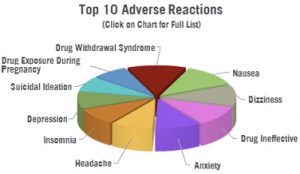 How antidepressants ruin your natural serotonin so you can never be happy again … without your pills 05/26/16
How antidepressants ruin your natural serotonin so you can never be happy again … without your pills 05/26/16
“The use of antidepressants has skyrocketed in recent years, despite a growing consensus that these drugs are dangerous and often ineffective in treating the conditions for which they are prescribed. Health experts in the US and the UK are concerned about the high rate of antidepressant use in both countries, and have warned that the trend could lead to a “public health disaster.”
Researchers have found that – contrary to pharmaceutical industry claims – commonly-prescribed antidepressant drugs such as Prozac are actually addictive, and can wreak havoc with the brain’s ability to produce serotonin.
From New Scientist:
“After stopping antidepressants, some people get withdrawal symptoms, which can include anxiety, difficulty sleeping, stomach upsets, vivid nightmares, and memory and attention problems. These can last for a few weeks or months. …
“Antidepressants like Prozac, which are known as selective serotonin reuptake inhibitors, raise levels of a brain-signalling molecule called serotonin, seemingly by blocking a compound that gets rid of serotonin. But after several weeks of taking the medicines, the brain responds by making less serotonin, which may be why when people stop taking them they can get long-term withdrawal symptoms.”
Drug companies and doctors interpret these psychological symptoms of withdrawal as evidence of the return of the original disorder, and so they routinely prescribe more drugs to address the problem.
However, the evidence shows that the brain may be unable to return to normal levels of serotonin production for months, or in some cases, even years after antidepressants have stopped being taken.
A team of researchers from the University of Liverpool conducted a study of 1,800 New Zealanders who were prescribed antidepressants – mostly of the Prozac type – and found that more than half of them suffered from psychological symptoms when they stopped taking them.
In theory, the use of these drugs can be gradually tapered off, but this can take months or years. Antidepressants may not only make an existing condition worse, but can also trigger other mental disorders…”
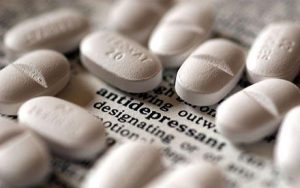 Antidepressants Not Just for Depression Any More 05/24/16
Antidepressants Not Just for Depression Any More 05/24/16
“Doctors prescribe antidepressants for a wide range of medical problems other than depression, apparently fueling the boom in sales of these medications, researchers report. Depression accounts for only a little more than half the antidepressant prescriptions issued by Quebec physicians during the past decade, the Canadian study found.
Doctors also issued antidepressants to treat anxiety, insomnia, chronic pain, panic disorders, fibromyalgia, migraine, obsessive-compulsive disorders, and a host of other “off-label” conditions for which the drugs are not approved, according to the report.
Two out of every three non-depression prescriptions for antidepressants were handed out under an off-label purpose, the findings showed.
“The thing that’s of concern here is that when prescribing for conditions other than depression, often these are for indications such as fibromyalgia and migraine where it’s unknown whether the drug is going to be effective, because it’s never been studied,” said senior author Robyn Tamblyn. She is a professor of epidemiology and biostatistics at McGill University in Montreal. “These doctors are prescribing in the dark,” she said.
Antidepressant use in the United States increased almost 400 percent between 1988-1994 and 2005-2008, with the most recent figures showing 11 percent of teens and adults take antidepressants, according to the U.S. Centers for Disease Control and Prevention.
Researchers have suspected part of this boom may be that doctors are prescribing antidepressants for off-label indications that haven’t been evaluated by the U.S. Food and Drug Administration, Tamblyn said.”
 Antidepressants in America are causing suicide rates to soar, especially among young women 05/23/16
Antidepressants in America are causing suicide rates to soar, especially among young women 05/23/16
“New data from the Centers for Disease Control and Prevention (CDC) shows a significant jump in the suicide rate in America in the years from 1999 to 2014. The rise has been particularly sharp among women and girls. Is it any coincidence that the percentage of Americans who take antidepressants nearly doubled during the same period?
Some parties with vested interests in Big Pharma are trying to blame this increase on the “black box” warning labels that were introduced by the FDA in 2004. These labels warn that the drugs increase the suicide risk in young adults and children, and some people are saying that these warnings are scaring people away from taking antidepressants and that is the real cause of the rise in suicide.
However, it’s important to take a look at exactly who is saying this. For example, the American Foundation for Suicide Prevention (AFSP)’s Christine Moutier has not been shy about blaming the warnings for suicides. Her motivation is clear: Her organization, the AFSP, has financial and other connections to pharmaceutical companies, a fact that was not disclosed when CNN quoted her criticism of the labels in a recent piece.
Research simply does not support the theory that the warning labels are reducing antidepressant use. In fact, the National Health and Nutrition Examination Survey shows that antidepressant use jumped from 6.8 percent to 13 percent from 1999 to 2012.”
 Anxiety Drug Overdoses in U.S. Hit Record Levels 03/10/16
Anxiety Drug Overdoses in U.S. Hit Record Levels 03/10/16
“Prescription drug overdoses have become alarmingly common in the U.S., with opioid painkillers, such as Vicodin and Oxycontin, among the drugs most frequently making headlines.
New research shows another class of drugs — benzodiazepines or “benzos” — is rising in the ranks of overdose deaths, however.1
Prescriptions for such drugs, which include brand names Valium, Ativan and Xanax, tripled from 1996 to 2013, but this doesn’t fully account for the uptick in overdoses, which quadrupled during that time period.”
Anxiety Drug Overdoses in U.S. Hit Record Levels 02/19/16
“The number has quadrupled over the past two decades. More Americans than ever are overdosing on anxiety drugs, researchers reported Thursday — and it’s not clear why. The new study finds not only that more Americans are taking the drugs, which include brand names such as Valium and Xanax, but that they’re taking more of them.
But while the quantity of prescriptions filled tripled between 1996 and 2013, the number of overdoses quadrupled during the same period, the team reported in the American Journal of Public Health.
“We found that the death rate from overdoses involving benzodiazepines, also known as ‘benzos,’ has increased more than four-fold since 1996….”
Science behind commonly used anti-depressants appears to be backwards 02/17/15
“Those serotonin-boosting medications actually make it harder for patients to recover, especially in the short term … “It’s time we rethink what we are doing,” Andrews says. “We are taking people who are suffering from the most common forms of depression, and instead of helping them, it appears we are putting an obstacle in their path to recovery.” The best available evidence appears to show that there is more serotonin being released and used during depressive episodes, not less, the authors say. The paper suggests that serotonin helps the brain adapt to depression by re-allocating its resources, giving more to conscious thought and less to areas such as growth, development, reproduction, immune function, and the stress response.”
30 Million Americans On Antidepressants And 21 Other Facts About America’s Endless Pharmaceutical Nightmare 09/02/14
“Has there ever been a nation more hooked on drugs than the United States? And I am not just talking about illegal drugs – the truth is that the number of Americans addicted to legal drugs is far greater than the number of Americans addicted to illegal drugs. As you will read about below, more than 30 million Americans are currently on antidepressants and doctors in the U.S. wrote more than 250 million prescriptions for painkillers last year.”
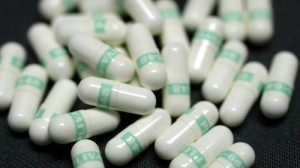
A single dose of SSRI antidepressants such as Fluoxetine, shown here, can change the brain’s functional connectivity within three hours, a new study found.
Antidepressants rapidly alter brain architecture, study finds 09/18/14 Although advertising has downplayed or covered up the fact that antidepressants physically alter brain structure so that the person taking them becomes increasingly unable to function without them, a new study gives startling evidence of how rapidly that occurs.
“A single dose of a popular class of psychiatric drug used to treat depression can alter the brain’s architecture within hours, even though most patients usually don’t report improvement for weeks, a new study suggests.
More than 1 in 10 adults in the U.S. use these drugs, which adjust the availability of a chemical transmitter in the brain, serotonin, by blocking the way it is reabsorbed. The so-called Selective Serotonin Reuptake Inhibitors, or SSRIs, include Prozac, Lexapro, Celexa, Paxil and Zoloft.
[A] discovery in the late 1990s [showed] that low-frequency brain signaling during relative inactivity, such as daydreaming, is a good indicator of functional connectivity.
When more serotonin was available, this resting state functional connectivity decreased on a broad scale, the study found. This finding was not particularly surprising — other studies have shown a similar effect in brain regions strongly associated with mood regulation.
But there was a two-fold shock: Some areas of the brain appeared to buck the trend and become more interdependent. And all the changes were evident only three hours after the single dosage.”
Xanax, Valium Raise Alzheimer’s Risk: Study 08/18/14
“Older adults who habitually use sedatives for anxiety or insomnia may have a heightened risk of developing Alzheimer’s disease, a new study suggests.
The drugs in question are benzodiazepines, a widely prescribed group of sedatives that include lorazepam (Ativan), diazepam (Valium) and alprazolam (Xanax). Older adults commonly take the drugs for anxiety or insomnia, often long-term, according to background information in the study.
That’s despite the fact that guidelines call for only short-term use of the drugs, at most. In 2012, the American Geriatrics Society (AGS) put benzodiazepines on its list of drugs considered “potentially inappropriate” for seniors, because of risks like confusion, dizziness and falls.
The current study isn’t the first to link benzodiazepines to Alzheimer’s risk, but it adds to evidence that longer-term use of the drugs — beyond three months — might be a risk factor….”
Antidepressant use during pregnancy may lead to childhood obesity, diabetes 06/21/14 Research indicates that children may be predisposed to develop type 2 diabetes and obesity later, if their mothers took antidepressants while pregnant. Up to 20% of pregnant women are being prescribed these drugs at present. The study linked fluoxetine (or fluoride). One in five American women suffer from depression during pregnancy and are prescribed antidepressant medication.
“While it is known that these drugs can increase the risk of obesity in adults, it is unknown whether a woman’s antidepressant use during pregnancy increases the risk of metabolic disturbances in her children…”
“We have demonstrated for the first time in an animal model that maternal use of a class of antidepressants called selective serotonin reuptake inhibitors, or SSRIs, resulted in increased fat accumulation and inflammation in the liver of the adult offspring, raising new concerns about the long-term metabolic complications in children born to women who take SSRI antidepressants during pregnancy….”
Original Articles
The Holy Spirit – Or Serotonin This is part one of a three-part series by columnist Stuart Goldman, who had been diagnosed as bi-polar 25 years earlier. He notes that for many years he had taken medication but still often found himself unable to leave the house or to do anything else. He dreaded facing each day because thoughts of the challenges to be faced filled him with anxiety. One morning he got up and found a King James Bible and began reading as the coffee brewed. Suddenly it was as if the words were meant just for him; they seemed to leap off the page as he read and he had a new understanding of the Scriptures. It no longer seemed like a foreign book.
When he next looked at the clock, he found he’d been reading for 10 hours. It occurred to him that he hadn’t taken his medication but he had no anxiety. The next day was the same and so he decided to go without it, thinking that if a problem did arise, he always could start taking it again. But the problem never returned. God’s Word is healing to both the body and the spirit and Goldman found the truth of that as he looked to God instead of to pharmaceuticals, which by his own admission often did nothing to relieve his symptoms, let alone make him whole. As of the date of this post, parts 2 and 3 have not yet appeared. But they should be accessible from this link to part 1 when they are published.
The Most Effective Treatment for Depression Isn’t Drugs… But You’ll Never Hear That From Your Psychiatrist This site provides a synopsis of the interview (linked below) by Dr. Mercola of Robert Whitaker. There also is a link to download the entire transcript of the interview. Whitaker is very knowledgeable about both the history of mental health treatment in America and about current treatments, including the development of modern psychotropic medications.
““There are two side effects or risks that really need to be addressed, and that everybody should be thinking about, that show up in the scientific literature,” Whitaker says. “The first risk is that you’ll convert from unipolar depression to bipolar depression. One of the things we’ve seen with the use of the SSRIs is this incredible, extraordinary boom in bipolar diagnoses, and that is definitely tied to the widespread use of antidepressants. Now, in kids, something like 25 to 50 percent of all kids placed on an antidepressant, who stay on that antidepressant for five years, will convert to bipolar illness. With adults, it seems like about 25 percent of long term of users that begin with a diagnosis of unipolar depression will convert to bipolar.“
…Most of you have probably heard that depression is due to a “chemical imbalance in your brain,” which these drugs are designed to correct. Unfortunately for anyone who has ever swallowed this marketing ploy, this is NOT a scientific statement.
Making matters worse, if you do not have low serotonin levels when you’re depressed, but you start taking an SSRI drug that blocks the normal reuptake of serotonin, you end up with the very physiological problem the drug is designed to treat –low serotonin levels. Which, ironically, is the state hypothesized to bring on depression in the first place. In 1996,… head of the NIMH… explain[ed] this chain of events. According to Dr. Hyman, once your brain has undergone these compensatory adaptations to the drug, your brain operates in a manner that is “both qualitatively and quantitatively different than normal.”
(YouTube video) Dr. Mercola interview with Robert Whitaker This interview of Robert Whitaker by Dr. Mercola is in 7 parts and runs just over an hour. The link is to the playlist so the separate parts will play in sequence without interruption. Whitaker is probably the premier American journalist on matters of mental illness. He was a finalist for the Pulitzer Prize in 1998 for his book, “Mad in America: Bad Science, Bad Medicine, and the Enduring Treatment of the Mentally Ill,” which traces the history of mental health treatment in America and exposes not only historic but modern mistreatment of the mentally ill by psychiatry and the drug industry.
There are many presentations on YouTube dealing with Antidepressants and Psychotropic drugs, and with the Pharmaceutical Industry in the area of Mental Health. A few short ones (under 10 minutes) with good information are these:
The Truth About “Schizophrenia” & Fixing Chemical Imbalances (YouTube video) Although this short clip featuring Robert Whitaker, taken from a film on Schizophrenia, focuses specifically on drugs and treatments geared toward that disease, the same statements can be made about treatments for depression. The literature demonstrates that there is little difference between pharmacological methods for either problem in terms of outcomes, side effects, etc. and in the culpability of drug manufacturers who know the statements they distribute through advertisements are untrue.
SSRI antidepressants destroy your brain – seroxat, paxil, lexapro, celexa. zoloft, luvox (YouTube video) An explanation of how antidepressants work and the consequences that can result in less than a month.
The Truth About Antidepressants #1 A Physician presents seven myths & facts about antidepressants
CCHM website– (Citizen’s Commission on Human Rights) A Watchdog Investigating and Exposing Psychiatric Human Rights Violations. The best site, bar none, for information on the mental health system, the pharmaceutical industry and all aspects of modern psychiatric treatment. They have numerous publications, public service announcements, links to take action, and excellent, comprehensive, factually accurate documentaries.
Their videos include full length documentaries on:
The Age of Fear: Psychiatry’s Reign of Terror The history of psychiatry, filmed in Germany and Austria. They were a real force for supporting Hitler and his agenda.
Diagnostic and Statistical Manual: Psychiatry’s Deadliest Scam Examines the (mostly political) basis for the listing of mental disorders in the International Classification of Diseases that is used throughout the world.
Dead Wrong: How Psychiatric Drugs Can Kill Your Child “Behind the grim statistics of deaths, suicides, birth defects and serious adverse reactions is the human face of this global drugging epidemic—the personal stories of loss and courage of those who paid the real price.”
The Marketing of Madness: Are We All Insane? “The definitive documentary on psychotropic drugging—this is the story of the high-income partnership between drug companies and psychiatry which has created an $80 billion profit from the peddling of psychotropic drugs to an unsuspecting public.”
Making A Killing: The Untold Story of Psychotropic Drugging “Psychotropic drugs. It’s the story of big money—drugs that fuel a $330 billion psychiatric industry, without a single cure. The cost in human terms is even greater—these drugs now kill an estimated 42,000 people every year. And the death count keeps rising.”
Psychiatry: An Industry of Death “Governments, insurance companies and private individuals pay billions of dollars each year to psychiatrists in pursuit of cures that psychiatrists admit do not exist. Psychiatry’s “therapies” have caused millions of deaths.”
Psychiatry’s Prescription for Violence
“Interviews with experts, parents and victims. Dramatic recordings of actual 911 calls made by desperate family members—and even by a killer himself—convey the chilling reality behind today’s headlines. Here is the shocking truth underlying the current wave of violence devastating our homes, schools and communities.”
Numb Documentary: The Depressing Truth about Antidepressants This site provides a synopsis and clips from the documentary, “Uncomfortably Numb”, which follows “filmmaker and suburban dad Phil Lawrence” as he tries to get off Paxil. The official site where the film can be rented or purchased is: Numb Documentary home
Paxil Study 329 (YouTube video) This is a posting of an episode of the BBC program, “Panorama” (similar to 60 Minutes in the US). At issue are the deceptive reports from clinical trials and the willful marketing of Paxil by GlaxoSmithKline, despite their knowledge of the drug’s ability to cause homicidal/suicidal behavior, as it came to light in lawsuits against the Paxil manufacturer for wrongful death.
McMan’s Depression and Bipolar Web: Antidepressants – The Dark Side A blog site discussing the cases behind the “Paxil Study 329” Panorama investigation.
Fluoride: Calcifier of the Soul
“Prozac may represent an archetypal example of how fluoride affects the personality/soul. This drug (chemical name fluoxetine) is approximately 30% fluoride by weight and marketed as an “antidepressant,” even while a major side effect of its use and/or withdrawal is suicidal depression… Fluoride and fluoxetine, in fact, may accomplish their intended “therapeutic effects” by poisoning the pineal gland. Animal studies confirm that when mice have their pineal glands removed they no longer respond to fluoxetine.
Perhaps the primary reason why Prozac causes a favorable reaction in those who are treated (poisoned) with it, is that it disassociates that person from the psychospiritual conflicts that they must normally suppress in order to maintain the appearance of sanity and functionality in society, i.e. it is control and not health that is the goal of such “treatment.”
If Prozac and other sources of fluoride in our environment deposits within the pineal gland, accelerating the transformation of functional pineal tissue into calcification, is it possible that it works by dehumanizing and flattening the affect of those who are under its influence?”
Anti-Depressants and Fluoride Not only are they hiding what actually is in these drugs (and for good reason) but they are knowingly causing increasing mental health problems in the population at large. Would anyone take a “remedy” for depression and/or anxiety in which the primary ingredient is a known toxin? Given all of that, why would these drugs be pushed so heavily, not only by drug manufacturers, but also by members of the medical profession, who by and large get their education about various drugs from the manufacturers? Profit.
“A bottle of Prozac (remember: fluoride) costs eleven cents for your manufacturer to create. It retails for $247.47, a markup of 224,973%. Because of this the pharmaceutical marketplace is the richest industry in the united kingdom.”
ScienceLab Material Safety Data Sheet on Sodium Fluoride Hazards of and first-aid information for Sodium Fluoride, verifying its toxic nature.
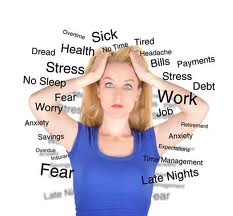
Isaiah 26:3 Thou wilt keep him in perfect peace, whose mind is stayed on thee: because he trusteth in thee.
Study Finds Antidepressants to be Depressingly Ineffective
A recent United Kingdom meta-analysis of 47 clinical trials found that antidepressant drugs provide almost no benefit to the people taking them.
The alternatives… include exercise, talk therapy, interpersonal therapies, and counseling. In other words, activities that naturally stimulate and invigorate the body and mind are increasingly being seen as the first line of defense against depression.
How we ended up in this position may be explained by a line within the pages of … “Listening to Prozac,” [which] suggested that anyone who is lacking “joy juice” might give themselves a dose of the “mood brightener” Prozac.
…However, given the results of the study, it is only reasonable to infer that some people who were prescribed antidepressants for depression were perhaps dealing with life’s ups and downs, daily routine, and other non-clinical stressors. If depression is caused by situational unhappiness, antidepressants alone will absolutely not help.As a result of the study,… the United Kingdom’s Health Secretary said, “Talking therapies can have dramatic effects. We have put a lot of emphasis on medication in the past and it is about time we redressed the balance and put more emphasis on talking treatments.”
Antidepressant Drugs Don’t Work – Official Study This is a very good article that unequivocally states that both the medical profession and the general public have been sold a bill of goods. It deals with an analysis of 47 combined studies in the United Kingdom and it also discusses treatments which do work for depression, all of which were common in the past before the introduction of SSRIs and which have none of the serious problems that the drugs have.
They are among the biggest-selling drugs of all time, the “happiness pills” that supposedly lift the moods of those who suffer depression and are taken by millions of people in the UK every year. But one of the largest studies of modern antidepressant drugs has found that they have no clinically significant effect. In other words, they don’t work. The finding will send shock waves through the medical profession and patients and raises serious questions about the regulation of the multinational pharmaceutical industry, which was accused yesterday of withholding data on the drugs.
…The pharmaceutical companies had withheld data that was available to the licensing authorities so that doctors and patients did not understand the true efficacy, or lack of it, of the drugs.
Psychological side-effects of anti-depressants worse than thought
“A University of Liverpool researcher has shown that thoughts of suicide, sexual difficulties and emotional numbness as a result of anti-depressants may be more widespread than previously thought.
In a survey of 1,829 people who had been prescribed anti-depressants, the researchers found large numbers of people — over half in some cases — reporting on psychological problems due to their medication, which has led to growing concerns about the scale of the problem of over-prescription of these drugs.
… “Effects such as feeling emotionally numb and caring less about other people are of major concern. Our study also found that people are not being told about this when prescribed the drugs.
“Our finding that over a third of respondents reported suicidality ‘as a result of taking the antidepressants’ suggests that earlier studies may have underestimated the problem.”
Anti-anxiety drugs, sleeping pills linked to risk of death
“Anti-anxiety drugs and sleeping pills have been linked to an increased risk of death, according to new research. The large study shows that several anxiolytic (anti-anxiety) drugs or hypnotic drugs (sleeping pills) are associated with a doubling in the risk of mortality.”
Antidepressant use in persons aged 12 and over: United States, 2005-2008 This NCHS Data Brief presents key findings from the CDC (Center for Disease Control) and examines data from the National Health and Nutrition Examination Surveys, 2005–2008. Among the findings are:
“• Eleven percent of Americans aged 12 years and over take antidepressant medication.
• Females are more likely to take antidepressants than are males, and non-Hispanic white persons are more likely to take antidepressants than are non-Hispanic black and Mexican-American persons.
• About one-third of persons with severe depressive symptoms take antidepressant medication.
• More than 60% of Americans taking antidepressant medication have taken it for 2 years or longer, with 14% having taken the medication for 10 years or more.
• Less than one-third of Americans taking one antidepressant medication and less than one-half of those taking multiple antidepressants have seen a mental health professional in the past year.
Antidepressants were the third most common prescription drug taken by Americans of all ages in 2005–2008 and the most frequently used by persons aged 18–44 years. From 1988–1994 through 2005–2008, the rate of antidepressant use in the United States among all ages increased nearly 400% “
Mad in America website A site, “designed to serve as a resource and a community for those interested in rethinking psychiatric care in the United States and abroad. We want to provide readers with news, personal stories, access to source documents, and the informed writings of bloggers that will further this enterprise.”
Anatomy of an Epidemic: Magic Bullets, Psychiatric Drugs, and the Astonishing Rise of Mental Illness in America by Robert Whitaker Readers interested in reviewing the studies on which the book is based can access them from this website. There is an excellent synopsis of this book (which won the 2010 IRE Award for Best Investigative Journalism) on Amazon:
“Robert Whitaker investigates a medical mystery: Why has the number of disabled mentally ill in the United States tripled over the past two decades? Every day, 1,100 adults and children are added to the government disability rolls because they have become newly disabled by mental illness, with this epidemic spreading most rapidly among our nation’s children. What is going on?
…Do psychiatric medications fix “chemical imbalances” in the brain, or do they, in fact, create them? Researchers spent decades studying that question, and by the late 1980s, they had their answer. Readers will be startled—and dismayed—to discover what was reported in the scientific journals.
…By the end of this review of the outcomes literature, readers are certain to have a haunting question of their own: Why have the results from these long-term studies—all of which point to the same startling conclusion—been kept from the public?”
Listening to Prozac: The Landmark Book About Antidepressants and the Remaking of the Self, Revised Edition This site says the book is available as a download for free. While the book provides a thorough exploration of character changes from Prozac and what these changes say about the nature of “the self” it is not entirely objective in its conclusions.
“This 1993 book helped introduce Prozac—which had hit the market five years earlier—and other antidepressants known as SSRIs. A psychiatrist, Peter D. Kramer, recounts the effect the drug had on some of his patients.
Dr. Kramer has been criticized for overbilling the effectiveness and safety of SSRIs. More than 15 years later, Dr. Kramer’s book is still important, but for a more balanced take, read it alongside Talking Back to Prozac: What Doctors Aren’t Telling You About Today’s Most Controversial Drug.”
Combining antidepressants: a review of evidence A professional journal from the UK, “advances in psychiatric treatment”, reports on the use of multiple drugs given concurrently or in combination with other classes of psychotropics. This article examines the efficacy of the approach, along with side effects and toxicity of these combinations.
“Sequenced (stepped) treatment approaches are widely endorsed in the management of depression. Combining antidepressants is a recognised step for those failing to respond to monotherapy. Despite the limited evidence base, this strategy is widely used by clinicians in practice. Not every combination used clinically has a sound neuropharmacological rationale and the use of such combinations may increase the side-effect burden without any additional advantage to the patient…
Optimising antidepressant use by attempting to ensure that patients take an adequate dose for an adequate length of time with measures to improve concordance is the first strategy recommended for managing incomplete response.
…[F]urther strategies include the use of higher doses, switching to another antidepressant of the same or different class, augmenting the antidepressant with either psychotherapy or a medication which is not an antidepressant (such as lithium or antipsychotics), or combining with another recognised antidepressant…
Despite the risks of an increased burden of side-effects or drug–drug interactions with antidepressant combinations, such combinations are common in clinical practice.”
Antidepressant Use Soars Among Deployed Just as the use of antidepressants and sleeping pills have soared in the general population, so too has their use risen in the military, especially among those stationed in Afghanistan. Among troops in Iraq, use is about 12%, while those in Afghanistan have a higher rate of roughly 17%. Given what is known about the side effects and the incidence of depression turning into bipolar disorder from the use of these drugs, what is the impact on our level of military preparedness, to say nothing of the effect on individual soldiers?
Recently there have been attempts by the government to label veterans, along with other right-wing groups, as “terrorists” who are unfit to possess guns once they’ve returned to civilian life. Could it be that the use of these drugs is allowing that designation to be supported by a factual basis, if only in a small percentage of vets? All it would take is some well-publicized incidents involving these soldiers for the government, through the media, to make a case for this position and turn the public perception of veterans.
A recent article in “Stars and Stripes” lays the groundwork, and notes that the drugs are necessary to keep soldiers in the field because of the strains being put on them. They neglect to mention that those strains caused by social engineering, rules of engagement that favor the enemy, and excessively long or repeat tours of duty are the things creating extraordinarily high stress levels in the first place. And the remedy for this stress is antidepressants and sleeping pills, something the government knows (from studies by the NIMH and others) have no beneficial effects, but instead cause many of these soldiers to develop chronic or increased mental health problems. Rather, the military alleges that, “escalating violence… and more isolated missions”, have caused the increase use. But can it be mere coincidence that suicide rates are going through the roof, compared to those of past generations? This past year, for the first time, the number of deaths from suicide actually surpassed the number of deaths from combat. That should alarm us all.
“For the first time in history, a sizable and growing number of U.S. combat troops are taking daily doses of antidepressants to calm nerves strained by repeated and lengthy tours in Iraq and Afghanistan, according to a report in Time Magazine.
In its June 16 cover story, the magazine reports that the medicines are intended not only to help troops keep their cool but also to enable the already strapped Army to preserve its most precious resource: soldiers on the front lines.”
The Hidden Enemy: Inside Psychiatry’s Covert Agenda On the drugging of our military and the huge increase in suicide among troops.
This phenomenon is fully explored in a new documentary from CCHR, (The Citizen’s Commission on Human Rights), The Hidden Enemy. It can be watched online for free at the CCHR website.
Conclusion
Your physical and mental health is very important, but of even greater importance is your spiritual health. Man suffers from a fatal spiritual disease called sin, which always leads to death.
Romans 6:23 For the wages of sin is death; but the gift of God is eternal life through Jesus Christ our Lord.
John 3:3 Jesus answered and said unto him, Verily, verily, I say unto thee, Except a man be born again, he cannot see the kingdom of God.
Right now, through repentance of the spiritual disease called sin, you can come to Jesus Christ, the Great Physician, for healing and assurance of eternal life.
Mark 2:17 When Jesus heard it, he saith unto them, They that are whole have no need of the physician, but they that are sick: I came not to call the righteous, but sinners to repentance.
Now the Great Physician wants to heal your broken heart.
Luke 4:18 The Spirit of the Lord is upon me, because he hath anointed me to preach the gospel to the poor; he hath sent me to heal the brokenhearted, to preach deliverance to the captives, and recovering of sight to the blind, to set at liberty them that are bruised,
For those who love the Lord Jesus and are looking for His coming, the following is their future:
Revelation 21:4 And God shall wipe away all tears from their eyes; and there shall be no more death, neither sorrow, nor crying, neither shall there be any more pain: for the former things are passed away.




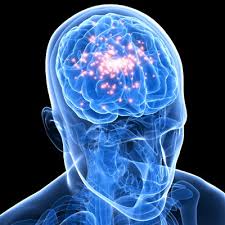
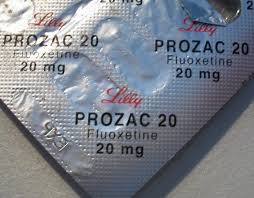
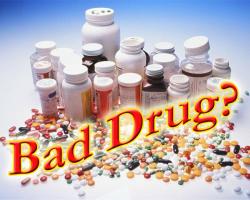


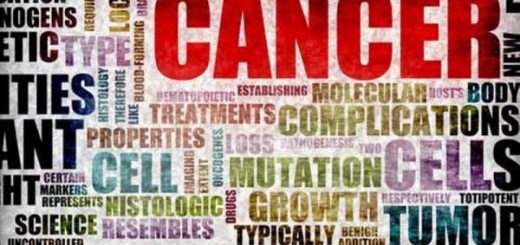





Spot on with this write-up, I truly think this website needs a great deal more attention. I’ll probably
be returning to see more, thanks for the info!
While some may be healed completely of all depression, anxiety, and other forms of mental illness, there are born-again Christians who do battles this daily and have found help in medication along with their faith. Although there is without any doubt a spiritual component to mental illness, I think it is an over generalization to say these disorders do not have a chemical basis. The newer antidepressants (not so much Prozac with a black box warning)have saved more lives in terms of suicide prevention foremost and if a schizophrenic patient has the option of taking a mood stabilizer that will enable them to better function, be a productive member of society and in their church, why should that be with held? Thankfully, more light has been shed on the physiological basis of mental disorders in the last few decades and advancements in treatments which used to be archaic and even in-humane I personally would like to see more faith-based psychiatrists and counsellors which seem to be hard to find.
I disagree with just about everything you said.
These drugs are based on voodoo science and are extremely dangerous.
The mask problems and can alter your thinking process. They affect your relationship with God.
I have found that most problems with depression are caused by a broken heart that is full of fear and rejection.
This needs to be healed by Jesus Christ as this is part of His ministry.
Luke 4:18 The Spirit of the Lord is upon me, because he hath anointed me to preach the gospel to the poor; he hath sent me to heal the brokenhearted, to preach deliverance to the captives, and recovering of sight to the blind, to set at liberty them that are bruised,
Fear is at the root of most mental problems.
2Timothy 1:7 For God hath not given us the spirit of fear; but of power, and of love, and of a sound mind.
Stay away from the drugs as they are powerful and extremely dangerous in every way including spiritually.
If you need prayer for a broken heart, you can email me at [email protected]
God bless and protect you.